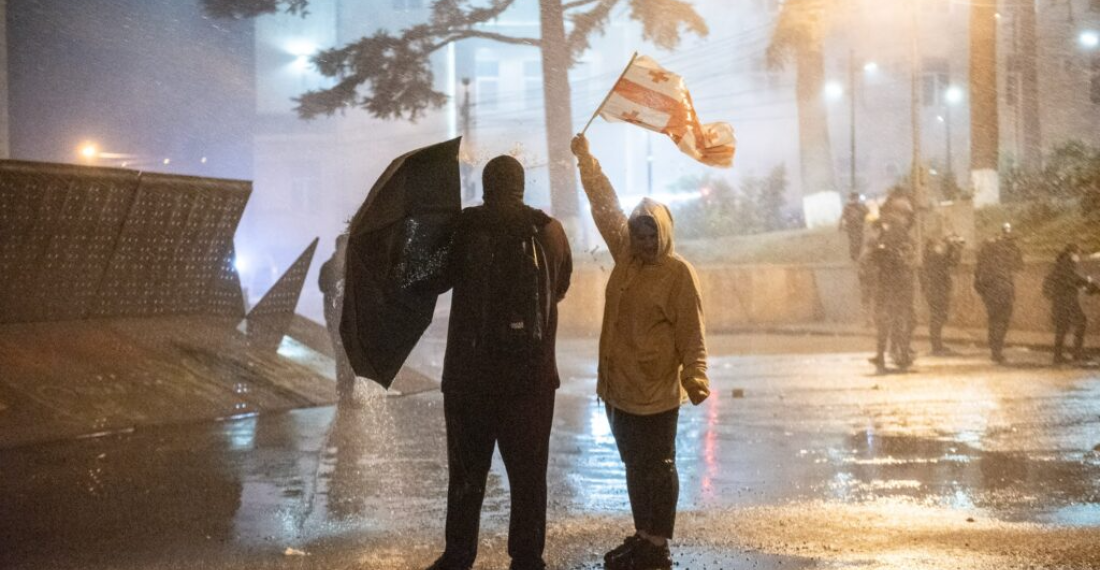In an extraordinary session of the Georgian parliament on Friday (10 March), the Georgian government has officially rejected the controversial draft law on "foreign agents" that had led to several days of violent protests in Tbilisi.
According to the English language outlet Georgia Today, 112 legislators attended the session, 35 MPs did not support the bill in the second reading, and only one MP voted in favour.
Crowds gathered outside the parliament celebrated as news broke of the draft law's formal rejection.
The controversial bill led to several days of protests that saw riot police deploying huge volumes of tear gas, using water cannon, and detaining dozens of protesters, some of whom destroyed cars, smashed windows, and broke down barricades to the parliament.
Read more here: "Commentary: Georgia is in a hole, and its politicians must stop digging"
In an announcement on Thursday morning (9 March), the ruling Georgian Dream party, the People's Power movement that introduced the law, and the parliamentary majority had said: “We, as an authority responsible to every member of society, have decided to unconditionally withdraw the bill we supported without any reservations.”
Soon after the announcement, however, it became clear that, legally speaking, the bill could only be "withdrawn" if parliament were to vote against it in its second reading.
Having initially said that the parliament would not be able to expedite the bill's formal rejection, protesters leaders and opposition figures expressed concern that the government was playing for time, whereupon the government called an extraordinary session of parliament to formally reject the bill.
What was the proposed law on foreign agents?
The draft law, which copied a similar law infamously introduced in Russia in 2012, would brand media, NGOs, and other civil society organisations that receive more than 20% of their funding from foreign sources as "agents of foreign influence".
This would require them to register in a Foreign Influence Agents Registry, and failure to do so would result in fines of up to 25,000 laris (€8,960).
The bill was introduced on 14 February by a group of pro-government MPs who formally left the ruling Georgian Dream party last year, albeit with the party’s support, to "speak openly" about an alleged Western conspiracy to "drag Georgia into war with Russia".






